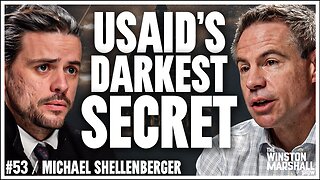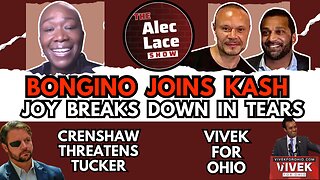Premium Only Content
![Homegrown Revolution - The Urban Homestead [2009 - Jules Dervaes]](https://1a-1791.com/video/s8/1/q/l/K/a/qlKal.qR4e-small-Homegrown-Revolution-The-Ur.jpg)
Homegrown Revolution - The Urban Homestead [2009 - Jules Dervaes]
https://youtu.be/7IbODJiEM5A
https://www.urbanhomestead.org
https://www.permaculturenews.org/2009/02/14/an-interview-with-jules-dervaes
2007 version: https://youtu.be/89HRDnYRLzY
Homegrown Revolution is a short introduction to the homegrown project that has been called a new revolution in urban sustainability.
In the midst of a dense city setting in downtown Pasadena, radical change is taking root. For over twenty years, the Dervaes family have transformed their home into an urban homestead and model for sustainable agriculture and city living.
Through the creation of the "Urban Homestead" the Dervaes family shows that change is possible -- one step at a time. They harvest 3 tons of organic food annually from their 1/10 acre garden while incorporating many back-to-basics practices, solar energy and biodiesel in order to reduce their footprint on the earth's resources.
Through the creation of the "Urban Homestead" the Dervaes family shows that change is possible.
Homegrown Revolution is a short film that was never created for a film festival circuit but has a true homegrown, homemade story behind its creation.
The original version of Homegrown Revolution was made in three days for a lecture Jules Dervaes gave at the University of California Los Angeles in October 2007 on the topic of Slow Food. It received a wildly enthusiastic response from the students and, subsequently, attracted an avid following on YouTube, with over 500,000 views to date.
This new version of Homegrown Revolution was created in 2009 and went on to screen at many film festivals throughout the world.
It is a collaborative project done by Jules, Anais, Justin and Jordanne with each member taking part in the filming, editing and structure of the film. No one had any previous film editing / filming experience but they hope the passion and enthusiasm of their lifestyle and project show through any technical flaws.
Made in-house on computers powered by solar/green sources. All transportation was done in a biodiesel-fuled car and All camera/mic batteries were rechargeable and charged with solar energy. Waste was kept to a minimum, paper composted or recycled and all publicizing materials printed on post consumer paper.
-
 LIVE
LIVE
Russell Brand
1 hour agoBREAK BREAD EP. 15 - LECRAE
1,323 watching -
 LIVE
LIVE
The Officer Tatum
1 hour agoLIVE Rachel Maddow, Don Lemon MELTDOWN Over Joy Reid's FIRING! + More Ep 68
810 watching -
 LIVE
LIVE
Viss
4 hours ago🔴LIVE - Precision Guided & Strategic PUBG Tactics!
260 watching -
 1:06:58
1:06:58
The White House
2 hours agoPress Secretary Karoline Leavitt Briefs Members of the Media, Feb. 25, 2025
28.3K16 -
 1:34:46
1:34:46
Russell Brand
3 hours agoControl Slipping: Germany’s Vote, Ukraine, Apple, and Joy Reid – SF543
74K17 -
 57:44
57:44
Winston Marshall
2 hours ago“They Were Hiding THIS!” Michael Shellenberger UNCOVERS Dark Secret About USAID and The Deep State
25.8K12 -
 50:59
50:59
Michael Franzese
1 day agoAmerica’s Biggest Issues EXPOSED by Tomi Lahren
38.8K11 -

The Dana Show with Dana Loesch
3 hours agoDOGE LAYOFFS FACE BACKLASH | The Dana Show LIVE On Rumble!
15.2K6 -
 1:25:40
1:25:40
Bare Knuckle Fighting Championship
1 day agoThe Bare Knuckle Show with Brian Soscia
20.2K -
 51:01
51:01
TheAlecLaceShow
3 hours agoDan Bongino Joins Kash Patel at FBI | Vivek For Ohio | Where’s the Epstein List | The Alec Lace Show
17K3